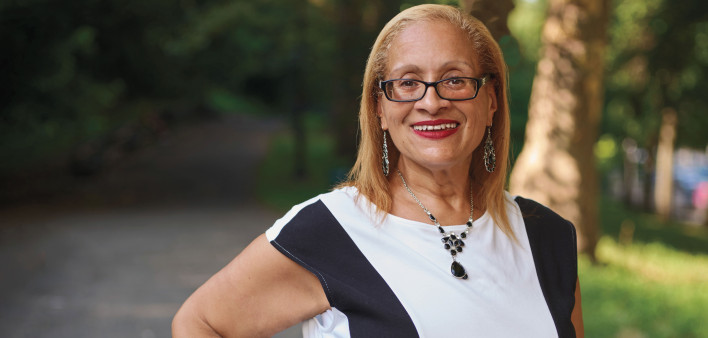Yolanda Diaz wears many hats. A longtime AIDS activist and community organizer from the Bronx, New York, she is a health educator at Iris House, a nonprofit that provides housing and social services to women at risk for HIV.
In addition to her day job, Diaz volunteers at the U.S. People Living with HIV Caucus (aka the HIV Caucus), a nationwide voice for people living with HIV.
Diaz is also a cofounding member of Positive Women’s Network–USA, a group for HIV-positive women that aims to “strengthen the strategic power of all women living with HIV in the United States.”
Given all that, she has some advice for anyone newly diagnosed with HIV. “Get involved, and start helping other people,” says Diaz. “Get with the community, and continue to save lives.”
Her life exemplifies service to community, which Diaz credits with helping her manage her own 34-year battle with HIV. She says she has experienced many ups and downs since her HIV diagnosis in 1989.
“I used drugs to get high,” says Diaz. “I was in the penitentiary. I got arrested and did time in Bedford [Hills Correctional Facility]. When I came home in 1996, I decided to change my life around. And I had people there to help me.”
Diaz pays it forward with her laser-sharp focus on at-risk populations. Some of the women she helps are fleeing abusive relationships. Others are exiting prison. And then there are people who inject drugs, an underserved and heavily stigmatized population that relies on harm reduction interventions to avoid diseases like HIV and viral hepatitis.
“The path to an AIDS-free generation will not happen without that harm reduction work,” she says.
Diaz has vowed to keep fighting the persistent stigma around HIV and AIDS. Her goal is to foster a climate in which more people get tested and know their HIV status.
Prospects for managing HIV can vary depending on geography, says Diaz, citing laws in dozens of states that criminalize HIV transmission and thus perpetuate HIV stigma.
“It depends on what state you live in,” Diaz notes. “You do have HIV decriminalization happening now, but these laws are still on full blast in over 30 states. People get criminalized just for having HIV.
“It’s also very important to develop HIV organizations for people 50 and over,” she says, pointing to changes in America’s HIV population.
According to the National Institutes of Health, people 50 and over account for over half of HIV cases in the United States. This aging cohort also includes a growing number of people like Diaz who are well into their fourth decade managing HIV.
“Back in the 1980s, nobody ever thought we would live to be over 50 years old,” Diaz says. “They’d say, ‘Listen, go sell your life insurance—you’re going to freaking die.’ And here we still are. I’m 61 years old and still living, still planning to go on vacations, still going, still moving.”







Comments
Comments